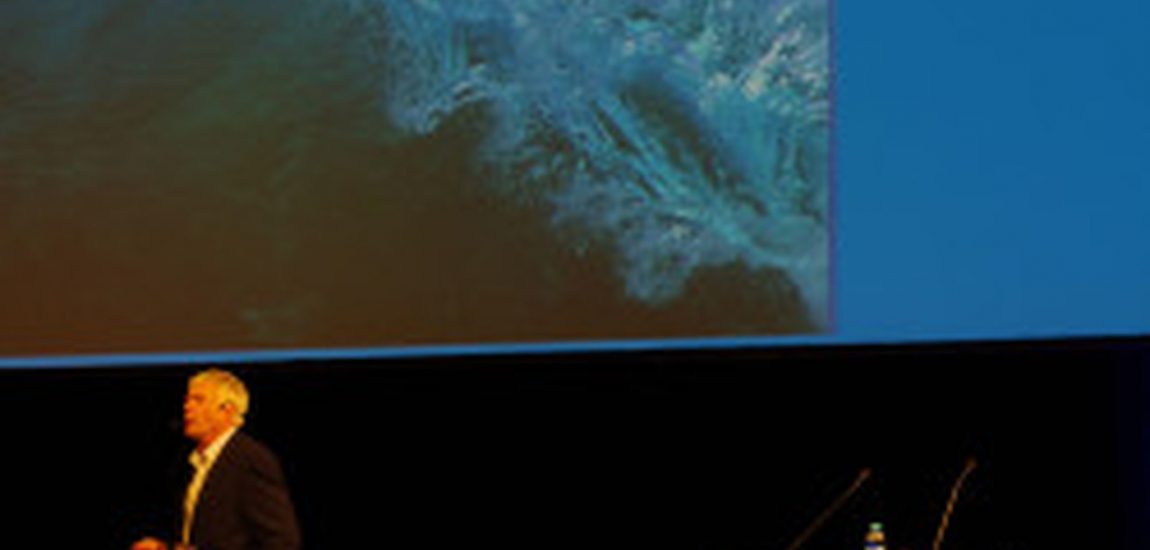
The critical condition of coral: awareness, and obligation of the scientific community
To say the conference has been animated over the past 27 hours would be a gross understatement. Acquisitive brains flit purposefully between the nerve centers of the hive, stopping only during brief but necessary trips via the coffee bars en route.
Nearing midday yesterday we were invited to the grand auditorium at the heart of the conference center for the first of this week’s plenary talks. Given by Peter Sale, it was to be a topical and impactful account detailing first-hand observations of negative anthropogenic influence on coral reef ecosystems worldwide. Peter took the audience on a journey through 51 years of experience in marine ecology. Whilst it was impossible not to share his excitement at accounts of early scientific exploration off the coast of Hawaii, the adventure soon turned dark as he recounted growing, heady realisation which was to alter the course of his career. These beautiful and intricate calcifying habitats were beginning to visibly degrade and it became rapidly apparent that the culprit for this damage was man. Multi-tiered ecosystems remain victim to multi-tiered destruction from forcings including over-fishing, pollution and ocean acidification, and with one fifth of the world’s population directly dependent on neighbouring tropical coastline ecosystems a step change in management of, and attitude towards these forcings is vital. Peter also strongly advocated the moral and ethical case that the human race cannot persist with blatant disregard for the collapse of such incredible diversity. Unfortunately continued feeble management of stressors is doing little to ameliorate rapid deterioration.
On our way to the plenary lunch I had the opportunity to learn a little about Peter, who amongst many things has a passion for Hobie kayak sailing on the lakes near his home in Muskoka, Canada. He also expressed enthusiasm for scientific debate, which became even clearer over the following 90 minutes. With everyone settled around the small meeting room, an animated discussion ensued including critical subjects of global population and sustainability.
It’s cosy and comfortable to believe that we live in a world which is able to naturally regenerate from the negative impacts of the human race, however this attitude is also the most detrimental; spawning disregard for crucial and achievable methods of resuscitating natural systems before they’re lost from the planet entirely. The take home message for me was one of outreach and articulation. Peter emphasised that scientific study alone cannot drive global socio-political change without eloquent and (importantly) comprehensible communication of research with the public.
Be sure to check out Peter’s blog here!
